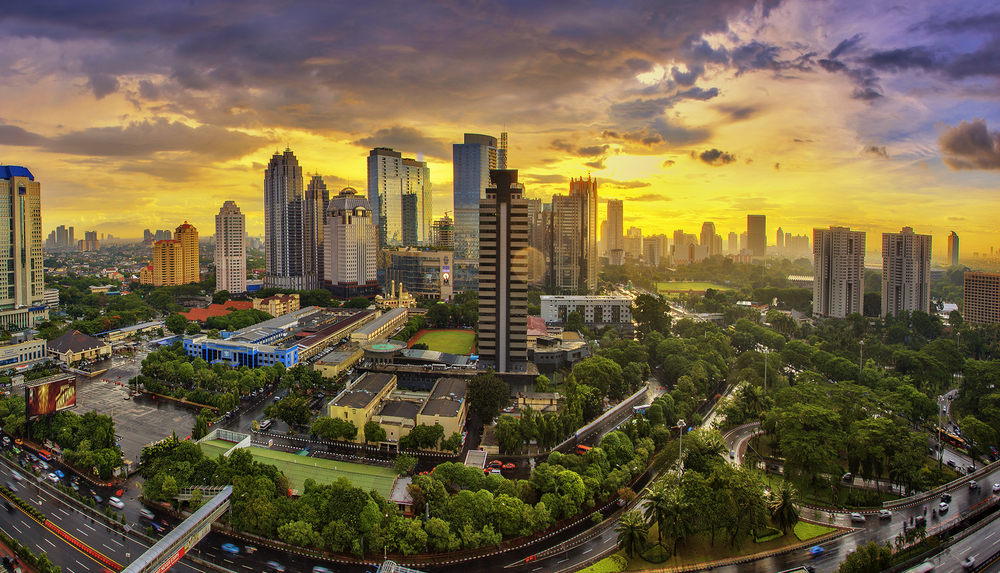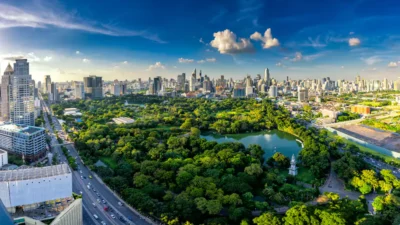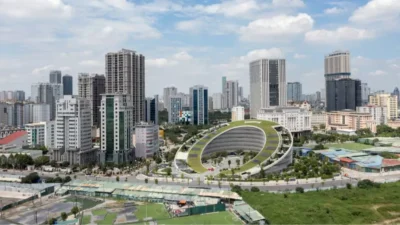Jakarta to remain business centre despite capital relocation
Great fanfare greeted the naming of Indonesia’s new capital, Nusantara, but real estate analysts don’t expect any significant shift in emphasis away from Jakarta in the near future

When Myanmar moved its capital city to Naypyidaw on November 6, 2005, civil servants in Yangon received just two days’ warning. The exact date and time were selected, in secret, by soothsayers employed by the military government.
The relocation of the Brazilian capital in 1960 was 133 years in the making. The name Brasilia was first selected in 1827. Both undertakings—like most capital relocations—received widespread criticism years before they were completed past deadline and over budget.
Nusantara, the future capital of Indonesia in East Kalimantan province, is beset by similar headaches. Billed as an eco-friendly answer to sinking Jakarta, the new administrative hub in Borneo promises green construction and a host of liveability perks. Yet, critics warn building works will clear thousands of square kilometres of forest.
State city planners have marked a cross where the new presidential palace will eventually stand. But plans to break ground by the end of 2021 were delayed, a sign that stage one of the new city may not be completed by the target date of 2024 when civil servants are due to relocate from Jakarta.
More: 6 of the most breathtaking sights in Tangerang, Indonesia
Construction has begun on a dam which will provide water for the new city. Work is underway on access roads to allow initial construction work at the site, now expected to break ground in the second half of 2022.
“We are optimistic. We are currently completing logistics and roads,” said Minister of National Planning Suharso Monoarfa following the latest of his many visits to the site in mid-January. “The acceleration is extraordinary.
A slick government website for the project details plans to add a new economic area to Nusantara by 2035, including government incentives for the private sector. But the city is not slated for completion until 2045.
What happens between now and then will determine the broader trajectory of the Indonesian real estate market. For years the action has focused on Jakarta, the largest city in Southeast Asia by landmass and population.
Real estate dynamics around the new capital are just starting to take shape. Therefore, much remains unknown about the prospects for the site and the current capital Jakarta.
Land prices in and around the new capital site have increased about 25-fold since President Joko Widodo first announced plans for the relocation in 2019, according to the government in Sepaku district, East Kalimantan.
The central government is yet to outline a plan for securing plots for development and for reining in land speculation. Private investors in palm oil plantations currently own much of the land in and around the new capital.
The central government has allocated just IDR510 billion (USD35.6 million) for the first phase of construction. It announced plans to make up for the shortfall from the private sector, although few details have been confirmed. A law confirming the relocation was only passed by the Indonesian parliament in January 2022.
East Kalimantan Governor Isran Noor said the United Arab Emirates, United Kingdom, Germany, China, South Korea, and Japan had all expressed interest in contributing overseas investment and expertise. But contractors are still to be confirmed for much of the site.
More: New Indonesian capital ‘Nusantara’ unveils opportunities for property investors
Furthermore, many multinational real estate agents in Jakarta have relayed they have thus far received few inquiries from local and overseas investors seeking to become involved in the construction of Nusantara.
“Almost no major domestic companies or developers have put in strong interest for the proposed capital,” says Anton Sitorus, head of research and consultancy at Savills Indonesia in Jakarta. “It’s going to be a long process anyway, and I believe most [private sector property developers] don’t want to lose money for something that is still not certain.”
Most inquiries from clients have focused on how the relocation to Nusantara would impact the real estate market in Jakarta, says Sindiani Surya Adinata, a director at Knight Frank Indonesia.
“Only a limited number of our clients have asked about the capital relocation,” she says.
The label of Jakarta as the capital city may change. But its status as the financial capital and centre of business and the economy will not
After state offices empty, vacated buildings may create a short-term oversupply at the lower end of the office market, says Hendra Hartono, CEO of Jakarta-based real estate consultancy Leads Property and esteemed member of the PropertyGuru Indonesia Property Awards’ independent judging panel.
“They may compete with grade C commercial office buildings in Jakarta. And rental rates may be lower than grade C office buildings to attract tenants,” says Hartono, adding that the fiscally overstretched government would likely be keen to rent out old government buildings to obtain much-needed income.
Nusantara is unlikely to attract a significant number of private sector companies, aside from those directly related to the city’s construction or government contracting, says Sitorus. He added that there were few signs of significant relocation impacts on Jakarta’s real estate sector and the economy.
“The label of Jakarta as the capital city may change,” he says. “But it’s status as the financial capital and centre of business and the economy will not.”
The original version of this article appeared in Issue No. 171 of PropertyGuru Property Report Magazine. Write to our editors at [email protected].
Recommended
Meet the Bitkub CEO turning real estate on its head with cryptocurrency and tokenised ownership
Jirayut “Topp” Srupsrisopa, CEO of Thai crypto exchange Bitkub, is a true believer in the potential of digitised finance
6 sights to spot in Jardine’s Lookout, Hong Kong
With its sumptuous harbour vistas, this low-density area is one of the most sought-after in Hong Kong
Meet the architect rethinking disability in urban spaces and how cities can be reimagined
Author David Gissen outlines his vision for urban development that takes the needs of disabled citizens into consideration
Why Asia’s mixed-use developments are the future of real estate
Dynamic integrated communities are fusing real estate with commercial, leisure, and other amenities









